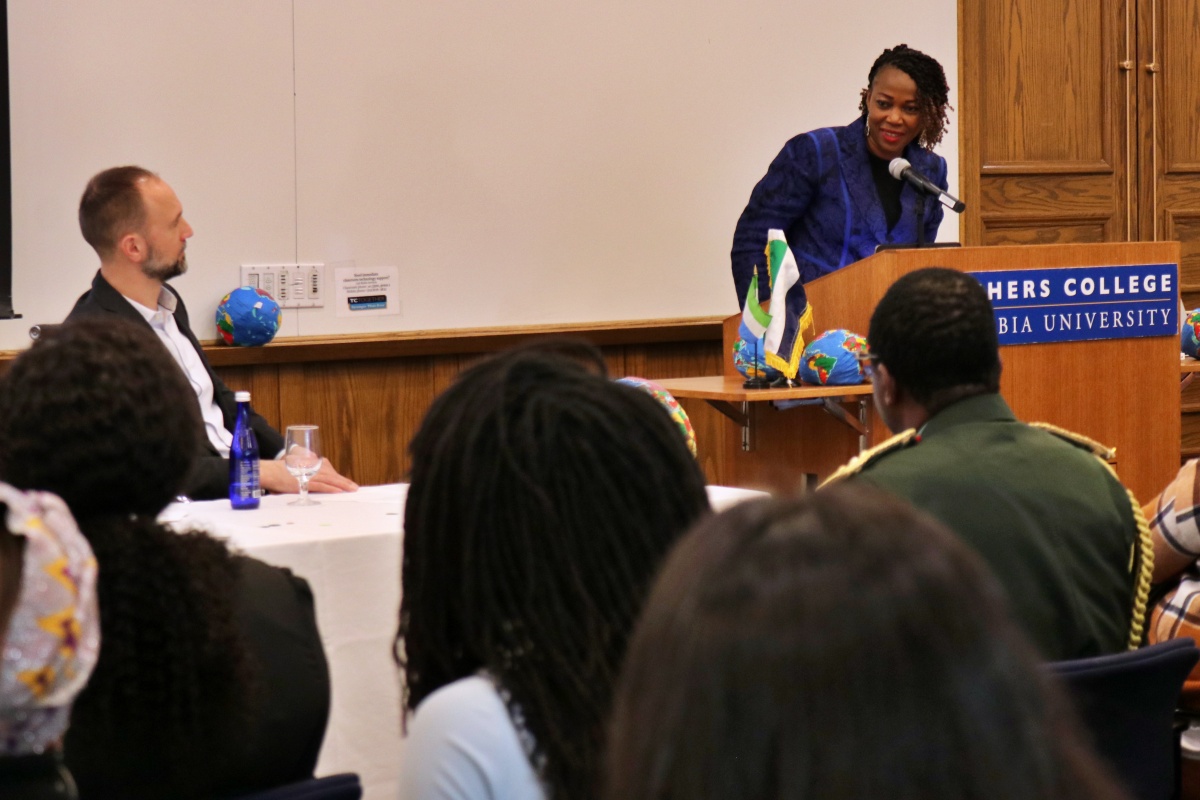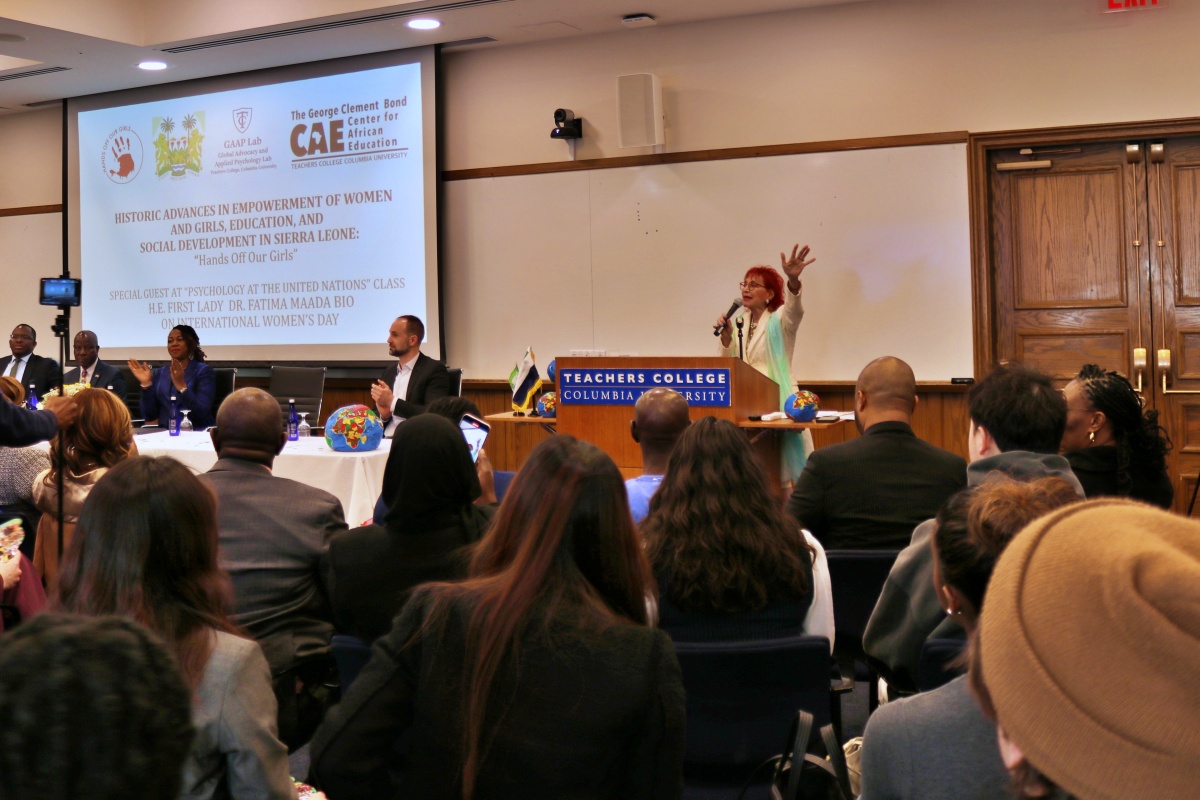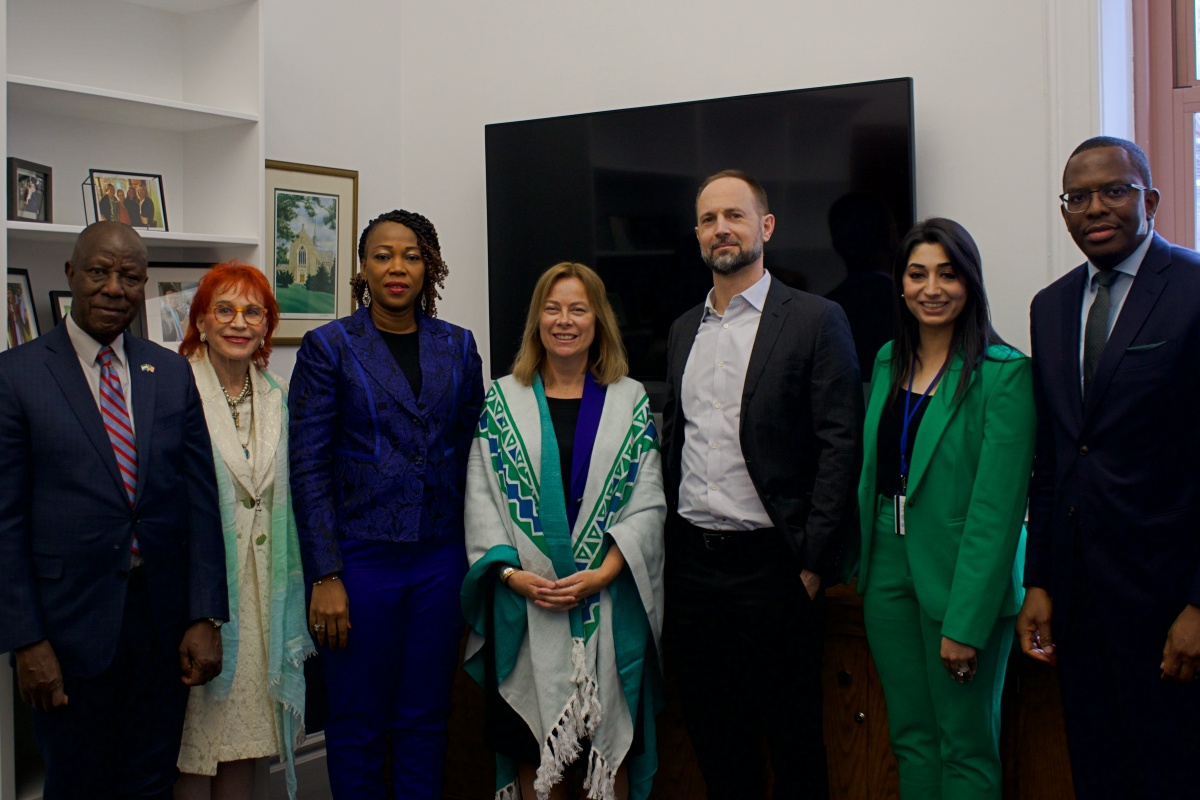At a critical moment for women across the world suffering from the fallout of geopolitical conflict, economic strife, climate change and more, Her Excellency Dr. Fatima Maada Bio called for collaboration in a special address given at Teachers College in honor of International Women’s Day. The first lady of Sierra Leone also discussed her country’s efforts to curb sexual and gender-based violence.
“It is quite evident that in all these moments of uncertainty, distress, and deprivation, the women folk who are struggling to protect the children and girls are the ones who always suffer,” said Maada Bio, who was invited to speak by TC’s Judy Kuriansky, who has spent decades as a UN representative for the International Association of Applied Psychology and the World Council for Psychotherapy.
“I've met a lot of young people who are willing and ready to work with me on this journey… And I want to say, please, let us make this world a better place,” Maada Bio said. “Because the world that we are living in at the moment is a very challenging one.”
Maada Bio’s visit comes at a critical moment for gender equity across the globe, as the UN urges its members to make progress towards its Sustainable Development Goals by 2030. However, officials estimate that only 15 percent of member countries are on track to achieve the UN’s ambitious targets for gender equity.

Her Excellency Dr. Fatima Maada Bio. (Photo: TC Archives)
Work towards the 2030 deadline in Sierra Leone includes efforts to abolish child marriage, despite estimates that nearly 30 percent of Sierra Leonean women between the ages of 20-24 were married before age 18. Variables driving the practice in Sierra Leone include education access, poverty, sexual violence and more.
The West African country is not alone in this effort, with UN officials quantifying child marriage at staggering rates, affecting 20 percent of girls under 18 across the globe and numbers jumping to as high as 40 percent in the least developed countries.
Related challenges to tackle in Sierra Leone include sexual violence against women and girls, which now carries heftier punishments and is now more effectively tracked through an improved system, according to the Sierra Leone government.
A survivor of child marriage herself, Maada Bio recognizes these reforms as difficult. In addition to serving as a leading champion of her country’s “Hands Off Our Girls” campaign, she and her husband, Sierra Leone President Julius Maada Bio, have also implemented free public education and reduced barriers to menstruation supplies to help alleviate disparities in opportunity.

Judy Kuriansky addresses the audience. (Photo: TC Archives)
Among those in attendance during Maada Bio’s special visit, students from Kuriansky’s “Psychology at the UN” course were able to ask the first lady questions about this ambitious work.
As part of TC’s work to help students apply their scholarship to real-world diplomacy, Kuriansky regularly escorts her students to sit in on UN meetings. In 2019, she explained: “I love showing TC students how psychology and mental health are fundamental to every issue in the world — like eradicating poverty, combating climate change and achieving gender equality, quality education, and peace — and how students can play an active role and make a difference.”
